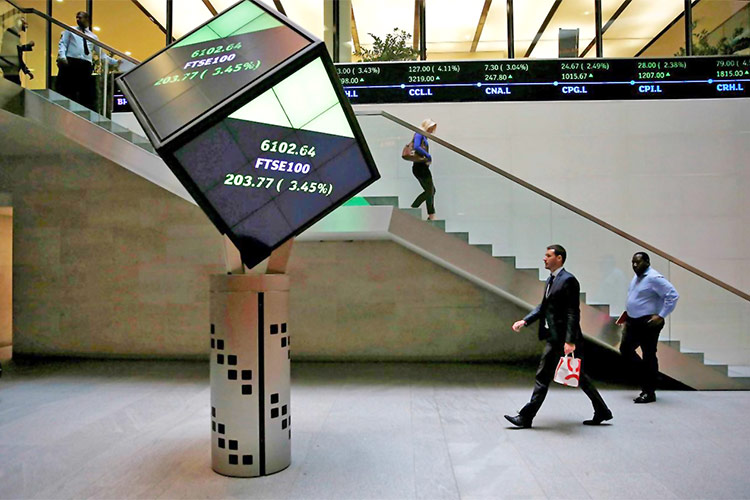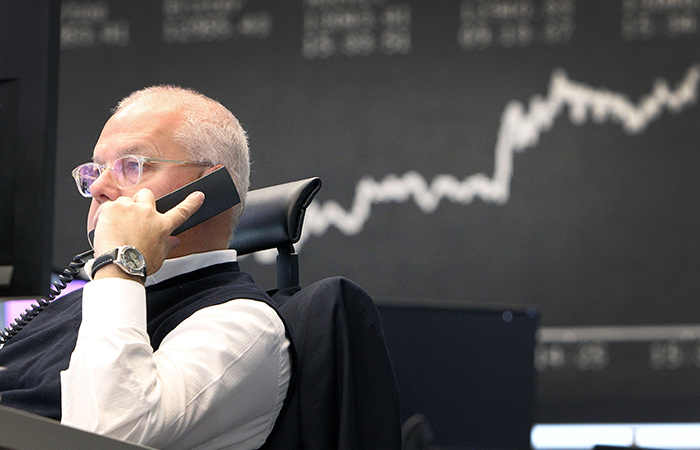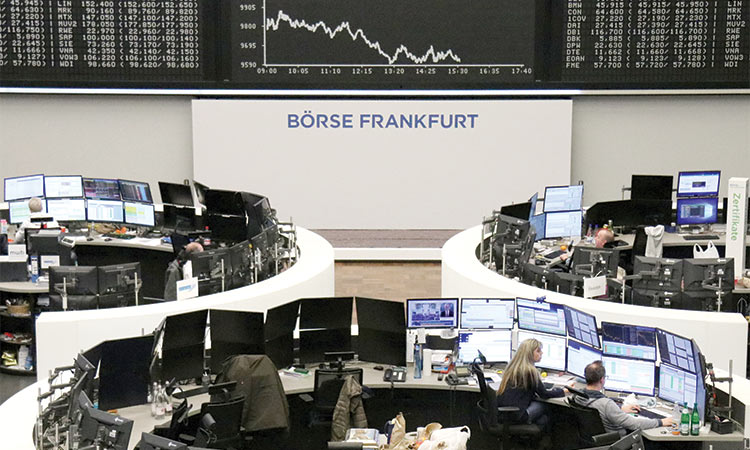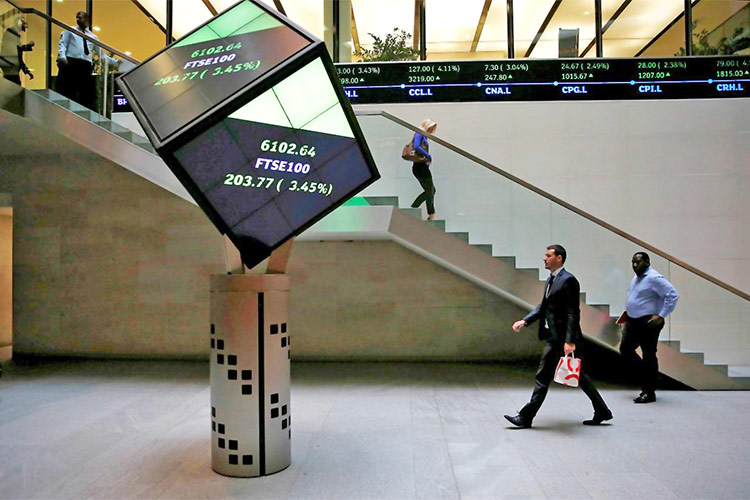European stocks rise, Asian stocks record decline

Picture used for illustrative purpose. File
Gulf Today Report
European stocks jumped on Friday despite a survey that indicated the Eurozone is in recession due to the pandemic.
Europe's eurostoxx 50 futures and Germany's DAX futures were both up 0.2%, while futures for London's FTSE were barely changed. E-mini futures for the S&P 500 were slightly lower.
The closely watched PMI index compiled by IHS Markit rose to 48.1 points in February from 47.8 points in January, closer to the 50-point level which would have indicated growth
CMC Markets analyst David Madden said, "the eurozone (economy) contracted by 0.7 per cent in the fourth quarter -- and the first quarter is expected to be even worse on account of (coronavirus) restrictions, so a recession is priced in."
In Britain, London stocks turned declined as the pound climbed above $1.40 for the first time in almost three years.
READ MORE
Gold prices fall due to increase in US Treasury yields
Oil prices slide due to chill impact on US refineries
UK retail sales decline as PM imposes new restrictions
The currency was propelled by a vaccination drive that has boosted economic recovery hopes and eclipsed news of a lockdown-driven slump in retail sales, dealers said.
Asian stocks
Asian stocks declined on Friday due to high bond yields and underwhelming US data dampening investor’s confidence.
MSCI's broadest index of Asia Pacific shares outside of Japan was last down 0.1% at 733.9 from a record high of 745.89 touched on Thursday.
Japan's Nikkei fell 0.7%. Chinese shares, which started the day in the red, recouped losses with the blue-chip CSI300 up 0.2%.
"It’s kind of odd to think that only a year ago investors were worried about depression and deflation and now they are worried about overheating and inflation," said Shane Oliver, Sydney-based economist for AMP.
Growing momentum for coronavirus vaccine programmes and hopes of massive fiscal spending under US President Joe Biden have spurred reflation trades.







